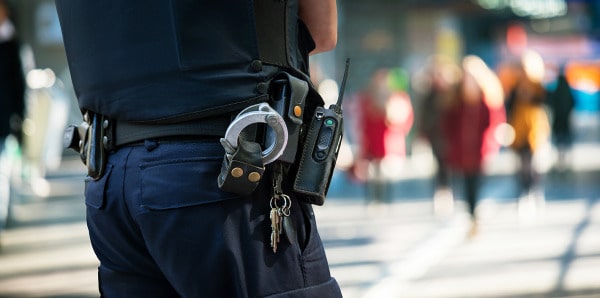Can Police Search Your Car?
It’s important to know your rights to react appropriately in encounters with the police. You have to know your rights when you get arrested, for example, to protect yourself. People who don’t know their rights can often make mistakes, saying things they later regret or agreeing to actions that they don’t need to agree with, simply because they weren’t aware that they had a right to refuse.
One of the most common situations in which this may happen is when you get stopped by police on the road. Many people aren’t sure about the specifics of this situation. Can police search your car without your consent? Can a cop search your car without a warrant? And what counts as an illegal search of the vehicle? This guide will answer all of the common questions on the subject.

Vehicle Search and Seizure Laws in California
Searches and seizures of cars and other vehicles may take place in a variety of situations, and it’s important to know that the specifics can vary from location to location. The California search and seizure laws, for instance, may be different from those in a different state.
In general, the police do have the power to pull over cars when they have a reasonable cause for doing so and may request to search the vehicle, obtain a warrant to search the car if the owner refuses, or carry out a warrantless search, depending on the circumstances.
They’ll often do this when they have probable cause to search a car, like if they believe that a weapon or criminal evidence may be found in the car, or if they can clearly see illegal substances or weapons in plain view. So if you’re wondering “Can police search your car if they see something illegal through the windows?” then the answer is a definitive yes.
Fourth Amendment Rights
The Fourth Amendment to the Constitution is what gives car owners protection against unreasonable searches. This essentially exists to protect people against random or arbitrary vehicle searches and invasions of their private spaces without any reason or cause.
Watch the Video to learn more.
Public Policy for Search Restrictions
The main reason why the Fourth Amendment was introduced was to prevent people from having to worry about unreasonable or unjustified searches. It is designed to act as a form of protection for the public and is an integral part of nationwide automobile search rules.
Vehicles as Private Spaces
Originally, the Fourth Amendment only covered homes as ‘private spaces’, but the specifics of the amendment were adjusted to incorporate a person’s car or personal vehicle too. In theory, this can offer protection against an illegal search of vehicles, but history has shown that cars aren’t as well protected as homes.
Can Police Search Car Without Warrant?
So can police search your car without having a warrant? Well, yes, as it’s not always necessary for police to have a warrant to conduct and carry out vehicle searches.
Automobile search rules on this subject have been a little vague over the years, but in 2009, the Supreme Court made a ruling that helped to clarify the situation regarding legal vehicle searches and illegal search and seizure in vehicles.
Police can search a car without any kind of warrant in these situations:
- If the driver has provided consent for a warrantless search
- If the officers have probable cause to indicate that illegal activity or criminal evidence could be found in the vehicle
- If the officer feels that their safety is in jeopardy from a concealed weapon or other threat
- If you are being arrested and the search is a relevant part of the arrest process
What Happens If Police Damage My Automobile During the Search?
This is something of a gray area, and there have been different cases in which people have made claims and gone to court after their possessions or property were damaged in vehicle searches.
In general, if the police have probable cause to search a car, search it, find illegal substances, and do some damage in the process, the owner of the car usually doesn’t have much legal leeway to get any kind of reimbursement.
However, if nothing is found and no law has been broken, the owner of the car can file a claim and potentially take the matter to court with the help of a Los Angeles criminal defense lawyer.

